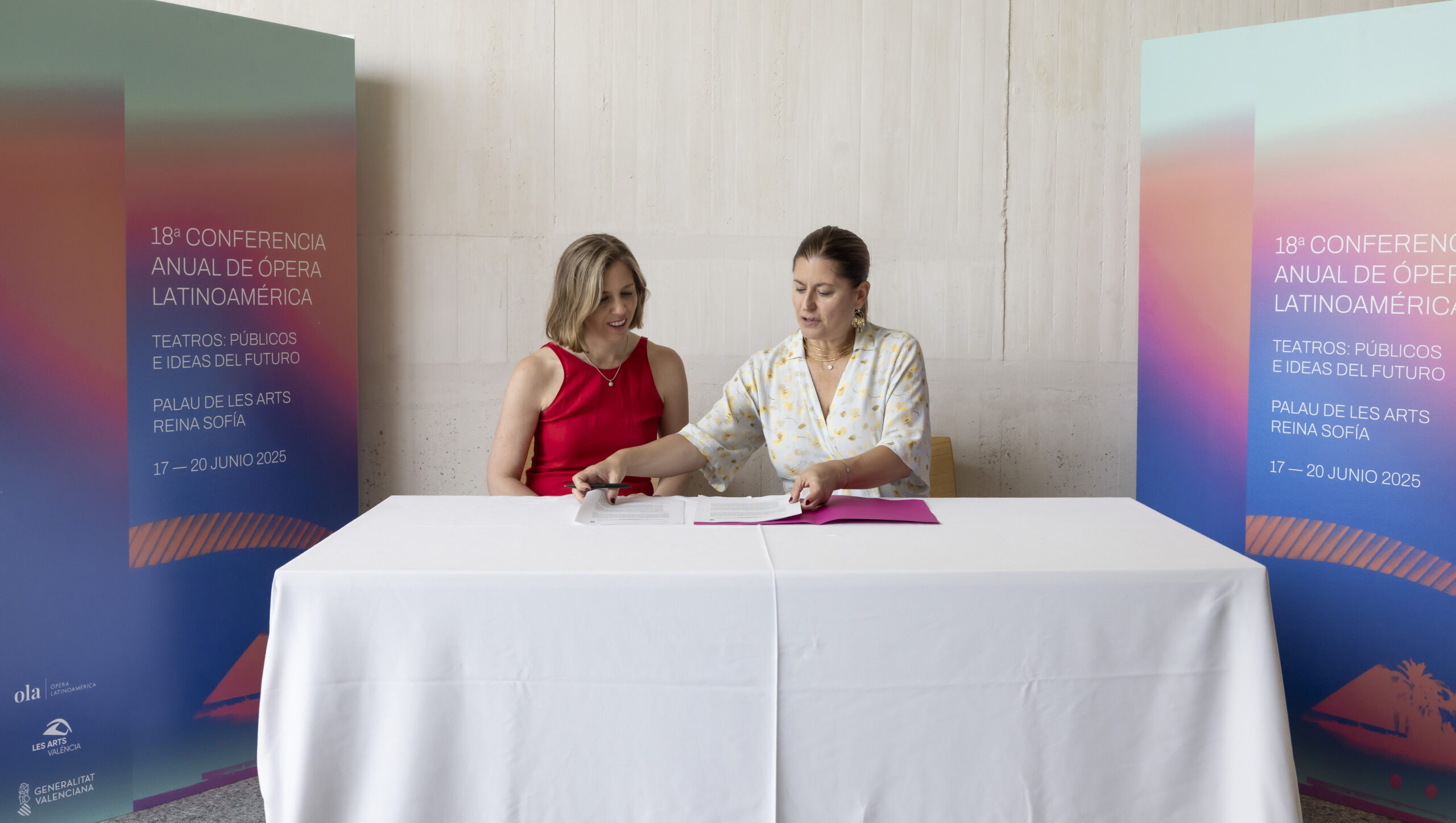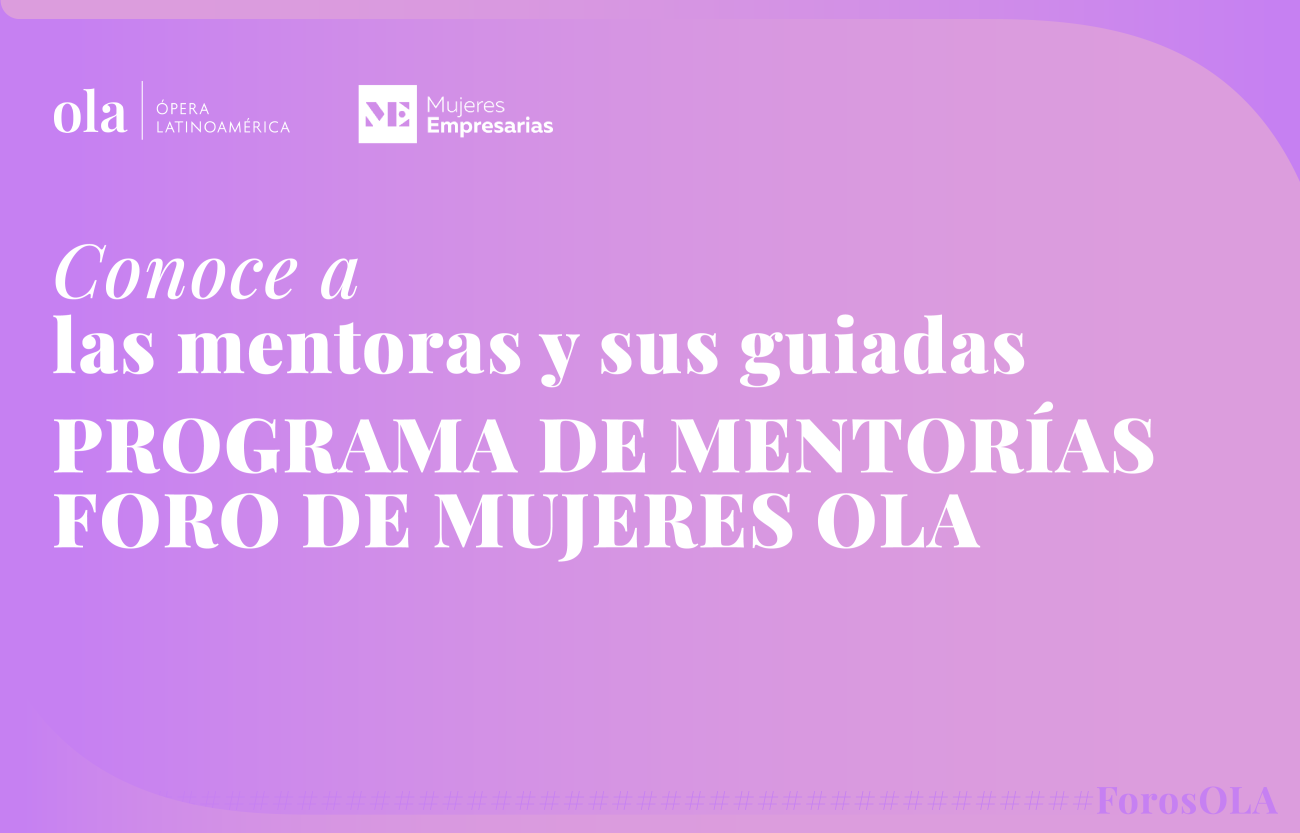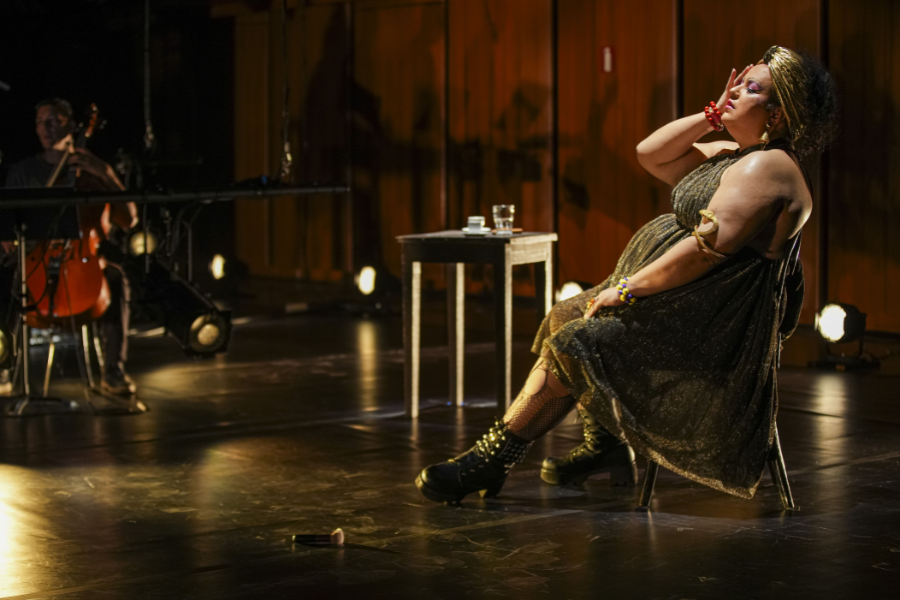Ópera Latinoamérica (OLA) y la Escuela Superior de Música Reina Sofía de la Fundación Albéniz firman acuerdo de colaboración

En el marco de la 18ª Conferencia Anual de OLA, la red de teatros, festivales y compañías de ópera iberoamericanas y la fundación cultural española firmaron un acuerdo de colaboración con el objetivo de establecer iniciativas con impacto en el sector de las artes de la representación clásicas y en la gestión de organizaciones artísticas y culturales en Iberoamérica. El acuerdo fue firmado en Valencia por Carmen Gloria Larenas, presidenta de OLA y directora general del Teatro Municipal de Santiago (Chile), Andrés Rodríguez, miembro del directorio de OLA y director de ópera del Teatro Colón de Buenos Aires y Julia Sánchez Abeal, CEO de la Escuela Superior de Música Reina Sofía.
11 de Julio 2025
La 18ª Conferencia Anual de OLA, realizada durante junio de 2025 en el Palau de Les Arts Reina Sofía de Valencia, fue el escenario para la firma de un acuerdo de colaboración entre Ópera Latinoamérica (OLA) y la Escuela Superior de Música Reina Sofía de la Fundación Albéniz (España).
El acuerdo fue firmado en Valencia por Carmen Gloria Larenas, presidenta de OLA y directora general del Teatro Municipal de Santiago (Chile), Andrés Rodríguez, miembro del directorio de OLA y director de ópera del Teatro Colón de Buenos Aires, y Julia Sánchez Abeal, CEO de la Escuela Superior de Música Reina Sofía.
En línea con el objetivo de OLA de crear redes internacionales de trabajo, capacitación y formación para la lírica en Iberoamérica, además de establecer alianzas con organizaciones alrededor del mundo, este nuevo acuerdo de colaboración busca unir esfuerzos, acciones y conocimientos de ambas instituciones con el objetivo de establecer iniciativas con impacto en el sector de las artes de la representación clásicas y de gestión de teatros en Iberoamérica. Este acuerdo, a su vez, se centra particularmente en el desarrollo del talento artístico de jóvenes de la región en disciplinas como canto lírico e interpretación musical.

Julia Sánchez Abeal, CEO de la Escuela Superior de Música Reina Sofía, y Carmen Gloria Larenas, presidenta de OLA y directora general del Teatro Municipal de Santiago. Foto: © Miguel Lorenzo-Les Arts
“OLA es una organización siempre comprometida con establecer nuevas alianzas y colaboraciones que contribuyan no sólo al desarrollo de redes para instituciones y artistas, sino que permitan abrir nuevos espacios de perfeccionamiento, en especial para cantantes líricos. Nos enorgullece la firma de este acuerdo que construye un nuevo puente para conectar a los jóvenes talentos con los centros mundiales de la formación y de la lírica”, señala Carmen Gloria Larenas, presidenta de Ópera Latinoamérica (OLA) y directora general del Teatro Municipal de Santiago (Chile).
“Las conferencias anuales de OLA son instancias para fortalecer relaciones, dar a conocer acciones que se vienen trabajando desde hace tiempo y toman forma en este tipo de acuerdos. OLA y la Escuela Superior Reina Sofía son organizaciones que tienen la capacidad de generar sinergias que beneficien a jóvenes a través de acciones de profesionalización como foros digitales, mentorías y residencias artísticas. Este tipo de convenios reafirman nuestro convencimiento de que el potencial artístico de la región iberoamericana se beneficia enormemente con estas fórmulas de colaboración”, expresa Paulina Ricciardi, directora ejecutiva de OLA.
“Desde sus orígenes hace más de 30 años la Escuela ha tenido una conexión profunda y permanente con los jóvenes talentos latinoamericanos. Entre nuestros alumni se encuentran primeras figuras de la lírica hispanohablante como Celso Albelo, Aquiles Machado, Ismael Jordi o Ana Lucrecia García. Actualmente un 30% de nuestro alumnado proviene de Latinoamérica y todos disfrutan de matrícula gratuita, que es una de nuestras señas de identidad. Con esta alianza con OLA queremos seguir consolidando esa relación natural con el tejido artístico iberoamericano y contribuir a la formación del talento joven de las nuevas generaciones de artistas, reforzando a su vez ese puente con la Escuela como destino formativo de excelencia”, afirma Julia Sánchez Abeal, CEO de la Escuela Superior de Música Reina Sofía.

Julia Sánchez Abeal, CEO de la Escuela Superior de Música Reina Sofía, y Carmen Gloria Larenas, presidenta de OLA y directora general del Teatro Municipal de Santiago. Foto: © Miguel Lorenzo-Les Arts
Plan de acción conjunto
El acuerdo de colaboración entre OLA y la Escuela Superior de Música Reina Sofía de la Fundación Albéniz contempla trazar un plan de acción conjunto que abarque los principales intereses, contextos y líneas de desarrollo de artistas en la región iberoamericana.
Las acciones del acuerdo incluyen una primera etapa de diagnóstico para luego definir líneas de acción concretas. Entre ellas se incluye la posibilidad de generar y explorar redes de trabajo colaborativas –a través de residencias artísticas que fortalezcan los vínculos entre ambas instituciones– además de entregar oportunidades de colaboración e instancias de diálogo profesional.





